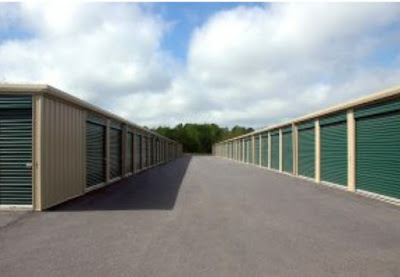If you are planning to make changes in your home, it is time to think about the improvement process! The significance of engaging in home improvement projects, such as renovations, repairs, and upgrades, cannot be overstated. These endeavors help preserve your home's structural integrity, ensuring it remains a safe and comfortable haven for you and your family. Also, enhancing your living space can significantly elevate your quality of life, creating a more pleasant and functional environment. So, in the following lines of this article, we will show you the best time to hire contractors for home improvement and start the process as soon as possible!
When Should You Hire Contractors For Home Improvement?
Now, let us present to you the simple steps that will help you to create a timeline for this process:
Assess the scope and urgency of your project.
Consider seasonal factors and weather conditions.
Before you hire contractors for home improvement, plan the removal of belongings from your home.
Research and interview potential contractors.
Secure necessary permits and approvals.
As you can see, these steps can help you to create a timeline for the upcoming process. Let us present each of these steps briefly to you!
Assess the Scope and Urgency of Your Project
Before you embark on any home improvement project and decide to hire contractors, it is imperative to take a moment to assess the scope and urgency of your endeavor. This careful evaluation can differentiate between a smooth, well-executed project and one fraught with challenges. That will help you to make informed choices about the timing and the kind of professionals you need to hire. Whether considering a simple kitchen remodel or a more extensive renovation, this critical step helps determine the budget. Also, it allows you to identify any urgent repairs or structural issues that may demand immediate attention. So, as soon as you define all these things, you can start the process!
Consider Seasonal Factors and Weather Conditions
When considering the best time to hire contractors, you should consider seasonal factors and weather conditions. This strategic assessment ensures that your project unfolds under the most favorable circumstances. For instance, planning an exterior paint job or roof repair during the rainy season might result in subpar outcomes and delays. Similarly, scheduling a heating system upgrade in winter can disrupt your daily life and comfort. By factoring in the seasonal variations and weather forecasts, you can optimize the timing of your project to align with more agreeable conditions. This consideration not only enhances the quality of the results but also contributes to a smoother and more stress-free improvement experience. Try to follow the forecast and separate the improvement tasks by day. Keep in mind that when the weather is bad, you should not do the improvement!
 |
| You should consider weather conditions. |
Before You Hire Contractors, Plan the Removal of Belongings from Your Home
One of the important things before hiring contractors for home improvements is to create a plan for moving all your valuables from the home. We are talking about the belongings that you still want to keep in your place once you finish the improvement process. This step often goes overlooked, but it can significantly impact the efficiency and success of your renovation or remodeling endeavor. One wise approach is to consider renting a storage unit for items that could be damaged, hinder the work, or simply get in the way during construction. However, when renting a storage unit, it is crucial to make a wise selection of belongings to store. In other words, there are things you shouldn't keep there. If you carefully plan the removal and storage of your belongings, you protect your possessions and create a clutter-free environment that allows contractors to work more efficiently.
 |
| Think about putting your valuables inside a storage unit. |
Research and interview potential contractors
The following step is to do research and interview potential contractors. Ideally, it's best to initiate this phase after you have assessed the scope of your project and considered seasonal factors. That lets you approach potential contractors who understand your needs and the project's demands. Researching thoroughly and interviewing contractors ensures that you find the right professionals for the job. Review their qualifications, experience, and track record by checking references and reading reviews. Also, interviewing multiple contractors allows you to compare their proposals, timelines, and costs.
 |
| Interview potential contractors. |
Secure necessary permits and approvals
Whether you're planning a major renovation or a smaller-scale upgrade, understanding the importance of this step cannot be overstated. Timing-wise, it's typically best to tackle this process after you've assessed the project's scope and selected a contractor. Local regulations and building codes vary widely. Obtaining the required permits ensures that your project complies with these regulations, which is essential to prevent legal issues and potential fines. Approvals may also be needed from homeowner associations or neighborhood committees, particularly for external modifications. Ignoring this step can lead to costly delays or even project shutdowns. In this way, you will stay in compliance with the law and ensure that your home improvement project proceeds smoothly and without unexpected hiccups.
So, when is the best time to hire contractors?
Ultimately, when is the best time to hire contractors for home improvements? We can say that you should start with the process as soon as you decide to make changes. Just consider the forecast and weather conditions. Also, ensure you find reliable contractors who can provide quality services and change your home for good!
Images used:
https://pixabay.com/photos/weather-station-digital-display-1468551/
https://pixabay.com/photos/storage-warehouse-storage-warehouse-1553550/
https://pixabay.com/photos/shaking-hands-handshake-hands-3091908/
https://pixabay.com/photos/laptop-office-hand-writing-319648









